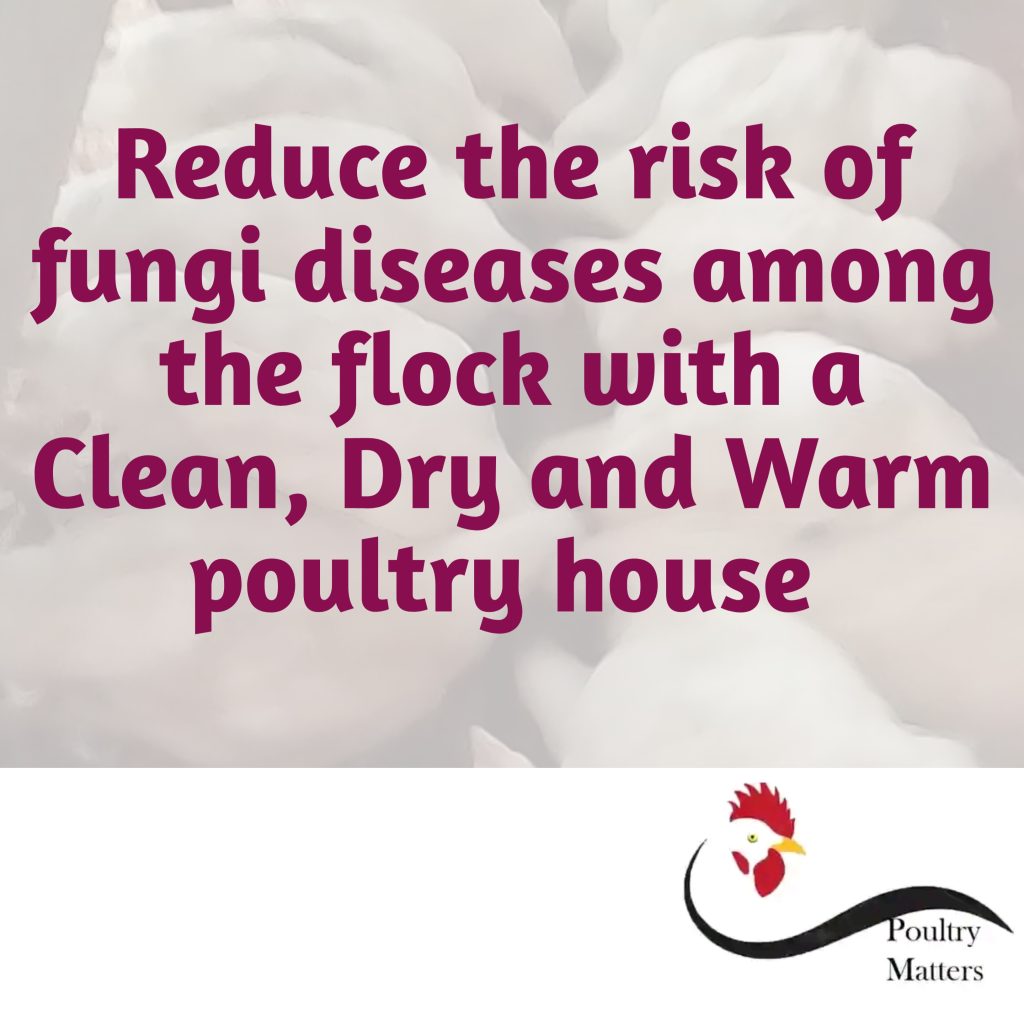Poultry fungi
In our ongoing discussions on poultry diseases, we have explored various types based on the nature of the organisms responsible. In this segment, we will focus on poultry fungal diseases — a category that is often underestimated but can pose serious health risks to the flock and significantly impact farm productivity.
Fungi are microorganism that can cause a range of health issues, particularly when birds are exposed to damp, poorly ventilated environment or contaminated feed. Examples fungi in poultry include – Aspergillus species, candidiasis, Fusarium species and Penicillum species.
Fungal infections in poultry may not be as commonly discussed as bacterial or viral diseases, but their effects can be equally devastating if not properly managed. These diseases can thrive under poor management conditions such as damp litter, contaminated feed, and unclean environments, making awareness and prevention all the more critical.
It is important to recognize that the impact of diseases on poultry farming remains one of the biggest challenges to achieving optimal productivity and profitability. Therefore, gaining adequate knowledge about the causes, modes of transmission, symptoms, preventive measures and control strategies of poultry diseases (especially fungal infections) —is fundamental to the success and sustainability of any poultry farming business.
Read more on bacteria and viral diseases
https://poultrygist.com.ng/2024/10/poultry-bacterial-diseases/
https://poultrygist.com.ng/2024/10/viral-poultry-diseases/
Poultry fungi diseases are basically caused by molds and yeasts found present in –
- Damp poultry beddings
- Improperly stored poultry feed.

Some impacts of fungi diseases on the birds
Fungal diseases in poultry can significantly affect the health and performance of the birds. These infections, when left unchecked, can lead to a range of complications, including:
- Respiratory issues – Many fungal spores are airborne and can be inhaled by birds, leading to serious respiratory conditions such as aspergillosis. Infected birds may exhibit labored breathing, coughing, or nasal discharge, which can compromise their oxygen intake and overall vitality.
- Digestive disturbances – Some fungi contaminate feed or water, leading to gastrointestinal infections when ingested. This can result in poor digestion, diarrhea, reduced feed absorption, and eventually weight loss or stunted growth in the birds.
- Weakened immune system – Fungal infections can suppress the immune system, making the flock more vulnerable to secondary infections from bacteria, viruses, or parasites. A weakened immune response reduces the birds’ ability to fight diseases and recover quickly.
Common poultry fungi disease include-
| SN | Name of disease | Caused by | Symptoms | Prevention |
| 1 | candidiasis | Candida albicans | 1. Whitish growth in the crop and mouth of the bird 1. Poor digestion Loss of appetite Weight loss | 1. Ensure dry and clean poultry house 2. Disinfect poultry house and equipment regularly |
| 2 | Favus (Ring worm) | Microsporum and Trichophyton | 1. Whitish scaly patches around the comb, wattle, face and feather of the bird | 1. Isolate infected birds 2. Ensure cleanliness of the poultry house always |
| 3 | Mycotoxicosis | Toxins from molds like Fusarium | 1. Stunted growth 2. Poor immunity 3. Organ damage | 1. Proper feed storage – avoid damp storage area 2. Use high quality feed |
| 4 | Asperrgillosis | Aspergillus in moldy litters, feed or beddings | 1. Difficulty in breathings – gasping Loss of weight 2. Weakness in the bird | 1. Good ventilation in the poultry house 2. Optimal cleanliness in the poultry house 3. Proper feed storage |
Conclusion –
Fungi disease though often overlooked is as dangerous as the viral diseases because of the threat it pose to the health and productivity of the flock. On a general note – proper housing with good ventilation, clean feed and water supply, as well as, early detection are key steps in preventing fungal infections and minimizing their harmful effects on the flock.

Your feedback is important to us – share with us your experience on the farm and opinion in the comment session
cheers.
